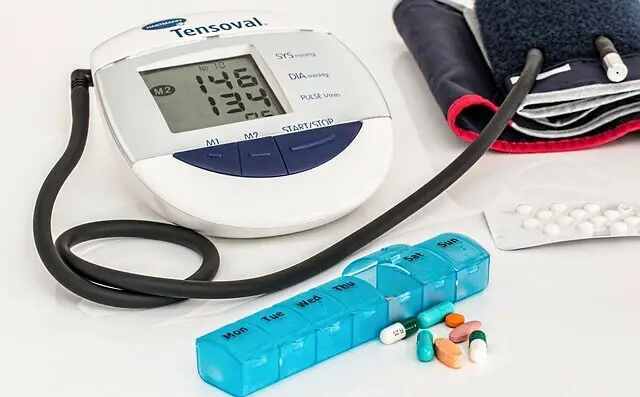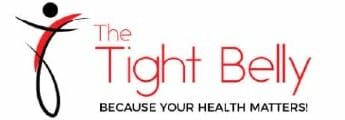
So, you’ve been thinking about how to begin a plant based diet, but are still unsure how tyo go about it and are even possibly getting a bit overwhelmed by it all – am I right?
I’m going to kick things off by setting the stage for a transformative lifestyle change. Moving to a plant based diet isn’t just about swapping out a few menu items; it’s also about embracing a new perspective on what it means to eat and live well.
What We’re Going To Be Discussing
You’re going to find out about what a plant-based diet really involves. It isn’t limited to just vegetables; it’s a rich mosaic of fruits, grains, legumes, nuts, seeds, and more.
We’ll explore how varying your diet within these plant-based food groups can ensure that you’re getting a well-rounded nutrient profile, a profile that will help keep your body in top shape (trust me; a plant based diet is a great way to lose some unwanted weight), be kinder to our environment and will also help your budget!
How to begin a plant-based diet? That’s the heart of the matter, and I’m here to help you with that crucial first step. Initially, it’s about making small, manageable changes rather than an overnight overhaul.
Start by incorporating more plant-based meals into your weekly routine and gradually reducing meat and dairy consumption. Choose something that resonates with you, maybe a meatless Monday, or swapping out dairy milk for almond or oat milk in your morning coffee.
In my opinion, education is key. Take the time to understand which plant-based proteins, like lentils or quinoa, can replace traditional meat sources while still providing essential nutrients. Not to mention, leafy greens and citrus fruits are your best friends for iron and vitamin C, respectively—nutrients you might worry about missing when cutting out meat.
Next up, we’re going to delve into the myriad health benefits that come with a plant-based diet. This is where the ‘why’ becomes crystal clear: not only is a plant-based diet rich in fiber, vitamins, and minerals, but it also has the potential to protect against a range of diseases—a top concern for many women over 35.
Health Wonders of Plant-Based Eating

I’m going to let you in on a secret: eating plant-based isn’t just a trend; it’s a lifestyle that can have remarkable effects on your health, especially for women over 35. When you’re considering how to begin a plant-based diet, it’s not just about removing meat from your plate; it’s also about embracing a wide array of whole foods that work wonders for your body.
Diving into the health benefits, a plant-based diet is a powerful ally for your heart. Studies consistently show that plant-based eaters often have lower cholesterol, blood pressure, and heart disease risk. What does this mean for you? Well, it could be the difference between simply living and living well.
Next, let’s talk weight management. Without all the saturated fats from meat, a plant-based diet can help you maintain or reach a healthy weight much more easily. This isn’t about fad diets; it’s about sustainable health gains that can impact your life every single day.
But it’s not only about your weight or your heart; hormone balance is another piece of the puzzle. For women 35 and older, this could be particularly beneficial. A plant-based diet tends to be rich in soy products, like tofu and tempeh, which contain phytoestrogens believed to help balance hormones.
If you’re hoping for expert validation, you’ve got it. Nutritionists and dietitians often promote a reduction in meat consumption as a proactive step towards better health. And really, who wouldn’t want expert-recommended strategies to feel their best?
Budget-Friendly Tips for a Plant-Centered Plate

If you want to know how to begin a plant-based diet while keeping your wallet happy, you’re in the right place. Choosing a plant-based lifestyle doesn’t have to mean spending more on groceries. In fact, one of the best-kept secrets is that plant-based eating can actually be easier on your budget.
In my conversations with women over 35 who’ve successfully shifted to a plant-based diet, many were initially concerned about the potential increase in grocery bills. However, they soon discovered that with a bit of planning and conscious shopping, they could enjoy a diverse range of foods without the extra cost.
So, how can you enjoy the cost benefits of a plant-based diet? Start by focusing on whole, unprocessed plant foods, which are often less expensive than their meat counterparts. Items like beans, lentils, whole grains, and seasonal vegetables are not only nutritious but also cost-effective.
To put this into perspective, compare the price of a pound of beans with a pound of beef. You’ll notice a significant difference, with beans being much cheaper and yielding more servings. Choosing more plant-based options often means you’re getting more bang for your buck, both in terms of portion size and nutritional value.
Now, for those who might think that going plant-based means sacrificing flavor or variety, it’s really time to dispel that tired old myth. There are countless affordable plant-based recipes that are as delicious as they are budget-friendly. From hearty veggie soups to vibrant salads and stir-fries, the possibilities are endless.
Don’t worry too much about buying specialty ‘vegan’ products, which can be pricey. Instead, focus on learning how to prepare satisfying meals from basic ingredients. It’s about creativity in the kitchen, and there are numerous online resources and cookbooks designed specifically for plant-based eating that can guide you.
Transitioning smoothly from cost savings to our next topic, choosing a plant-based diet isn’t just gentle on your budget; it’s also kind to the planet. So, as we think about the money we’re saving, let’s also consider the broader impact our food choices have on the environment.
Nourishing the Planet: The Eco-Aware Diet

I’m here to help you understand the environmental benefits of a plant-based diet. It’s not just about what’s on your plate; it’s also about the impact your food choices have on the environment. Did you know that shifting towards plant-based eating can significantly reduce your carbon footprint? It’s true, and the details are pretty compelling.
The meat industry is one of the largest contributors to climate change. Producing animal-based foods typically requires more resources than plant-based options. This includes companies such as large-scale meat and dairy farms, which often use vast amounts of water, contribute to deforestation, and release greenhouse gases. By choosing a plant-based diet, you’re actively reducing demand for these resource-intensive products.
You’re going to find out about the real difference this makes. For instance, for every burger you swap out for a plant-based option, you could be saving an estimated 660 gallons of water. That’s the equivalent of showering for two months!
This isn’t just a choice for today; it’s one for future generations. Women over 35 are in a powerful position to influence not only their own health but also the health of the planet. When you choose more greens over meat, you’re not only nurturing your body but also caring for the world around you. It’s a profound way to connect with a global community trying to make a difference.
Now, if you’re ready to take the next steps and turn this eco-aware diet into a sustainable lifestyle, you’ll want practical advice to keep you on track. That’s going to include learning about meal planning, smart shopping, and finding support in plant-based communities. Let’s roll up our sleeves and prepare to make this positive change, step by step.
Sustaining Your Green Routine: Practical Advice for the Long Haul
I’m hoping this article has helped to solidify your commitment to a plant-based diet, making sure that your new eating habits are sustainable and fulfilling. This isn’t just about making a temporary change; it’s about integrating meaningful habits that resonate with your lifestyle,
Maintaining a plant-based diet doesn’t have to be a daunting task. It’s about finding the balance and making it work within your daily routine. You can always adjust your approach down the road, but the key is to start with a solid foundation.
This foundation includes learning how to adapt family meals to include more hearty and nutritious plant-based options that even the pickiest eaters will love.
A big part of this lifestyle is prepping in advance. Meal prep can seem time-consuming at first, but it ensures that you have a healthy array of choices readily available, helping you to avoid falling back on less healthy, convenience foods. You’re going to find out about simple and efficient meal planning techniques that make cooking a breeze and help keep your diet diverse and exciting.
And don’t worry too much about going at it alone – there are communities and support systems in place for those starting on a plant-based journey. Choose something that resonates with you, whether it’s an online group, a local meetup, or even a plant-based cooking class. Connecting with like-minded individuals can give you the reassurance and the motivation that you need to stick with your new diet.
Are You Ready To Change – Or Still Deciding?

In the end, the choices you make today are the ones setting the stage for a healthy, vibrant future. Just don’t focus too much on perfection. Your first attempt doesn’t need to be your last, and small steps can lead to big changes. So remember, my fellow green warriors, be kind to yourselves as you embark on this path, and embrace the delicious and rewarding world of plant-based eating.
